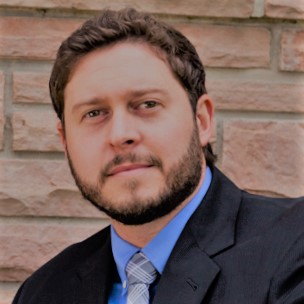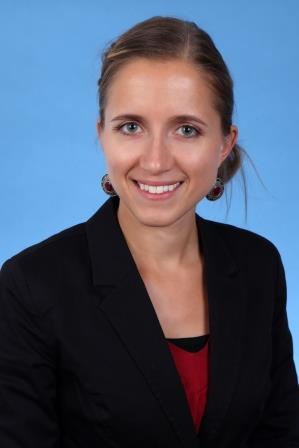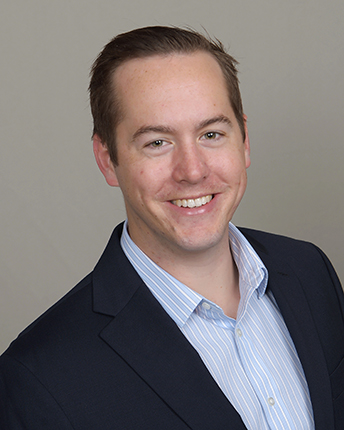2021 Grantee: Systematic Analysis of the methodologies and results of the research studies that have been most frequently cited in the risk assessment, public policymaking, and judicial decisions on the toxicity and carcinogenicity of ethylene oxide on humans.
2021 Grantee: Systematic Analysis of the methodologies and results of the research studies that have been most frequently cited in the risk assessment, public policymaking, and judicial decisions on the toxicity and carcinogenicity of talc on humans.

Heather N. Lynch, MPH, Supervising Health Scientist, Project Manager. Ms. Lynch is an environmental health scientist with 11 years of experience in toxicology and human health risk assessment consulting. Ms. Lynch’s areas of expertise include regulatory risk assessment, systematic review and weight-of-evidence analyses, study quality assessment, and the toxicity of heavy metals and per- and polyfluoroalkyl substances (PFAS). Ms. Lynch previously worked as a contractor to several government health agencies, where she managed chemical-specific toxicity assessments for the United States Environmental Protection Agency (US EPA) National Center for Environmental Assessment (NCEA) and conducted toxicity reviews of substances petitioned for inclusion in the United States Department of Agriculture (USDA) National Organic Program. Ms. Lynch has published numerous original peer-reviewed articles (including systematic reviews, weight-of-evidence evaluations, and commentaries) on a range of substances and health effects.

Kenneth Mundt, MS, PhD, Senior Principal Health Scientist. Dr. Kenneth A. Mundt is an epidemiologist with professional interest and experience in applying epidemiological concepts and methods to understand human health risks from environmental, occupational and consumer product exposures. He has designed, conducted and published numerous epidemiological studies, performed critical reviews and syntheses of the published literature, and is active in the development of methods for integrating evidence across lines of evidence including epidemiology, toxicology and exposure science. Dr. Mundt’s evaluations, publications and consulting have explored complex relationships between exposure to chemicals, minerals, and agents and risk of a broad range of human health outcomes including cancers, reproductive effects, cardiovascular and respiratory diseases. Dr. Mundt specializes in the practical application of scientific concepts, methods and evidence in evaluating disease causation, deriving health protective regulations, and for science-based evaluations for litigation and other decision-making purposes.

Bill Thompson, MS, Senior Consultant. Mr. Thompson has over twenty years of experience in legal and regulatory settings regarding the application of epidemiological and statistical principles and methods to recognize, evaluate, and communicate health risks. Mr. Thompson has employed his education in mathematics and biology to address and resolve epidemiological and health-related issues involving a variety of environmental, occupational and consumer product exposures. Much of his experience has focused on the evaluation of general and specific causation of chronic diseases at varying exposure levels. Mr. Thompson has conducted and managed systematic reviews, provided analysis, written reports and delivered presentations for projects in legal and regulatory matters involving multiple occupational, lifestyle or environmental exposures for cancers, respiratory diseases, cardiovascular diseases and other health outcomes.

Dr. Michael Anthony (Tony) Cappello, Managing Health Scientist. Dr. Cappello has more than 17 years of experience in a variety of scientific and leadership roles. Most recently, he served as the Director of Disease Control and Public Health Response and the State Environmental Epidemiologist for the State of Colorado. Prior to this, he was the Executive Director of the Northeast Colorado Health Department and in 2014 was appointed by the Governor to the Colorado State Board of Health where he served as Board President from 2015 to 2017. As a public health epidemiologist, Dr. Cappello has a professional interest and expertise in applying epidemiological concepts, methods and research to understand and respond to human health risks from environmental and communicable disease exposures. He is an expert environmental health specialist and disease control and outbreak response epidemiologist, having led many high profile public health responses. He also has expertise in applying scientific principles and methods to inform evidence-based decision making in public health policy, community health assessment and program development.

Jordan Kozal, PhD, Health Scientist. Dr. Kozal’s primary areas of training and expertise are toxicology and ecotoxicology, as well as human health risk and environmental risk assessment. Dr. Kozal completed her PhD in Environment with a Certificate in Integrated Toxicology and Environmental Health at Duke University’s Nicholas School of the Environment. Dr. Kozal’s research focused on the role of mitochondria in the maternal and cross generational toxicity of polycyclic aromatic hydrocarbons, with important applications in organismal ecological fitness and insights into human disease etiology. Jordan’s dissertation research and collaborations were interdisciplinary in nature, involving aspects of biochemical and molecular mechanisms of toxicity, effects of chemical mixtures, interactive effects of chemicals and other natural or anthropogenic stressors, and mechanisms and consequences of evolutionary adaptation to chemicals. At ChemRisk, Dr. Kozal’s primary practice areas include semiconductor chemicals, herbicides/pesticides, microplastics, ethylene oxide, and consumer products. Dr. Kozal has published multiple abstracts and peer-reviewed publications on various toxicology, ecotoxicology, and risk-related topics.

A. Michael Ierardi, MEM, MS, Senior Health Scientist. Mr. Ierardi’s principal areas of interest and training include industrial hygiene and safety, exposure science, toxicology, human health risk assessment, and environmental health. At Cardno ChemRisk, Mr. Ierardi provides on-site industrial hygiene support and sampling; manages and provides litigation support for cases related to occupational and environmental exposures to various agents, including asbestos, talc, and diacetyl; conducts numerous exposure assessments and dose reconstructions for a variety of chemicals in a diverse array of occupational settings; and routinely assists clients with risk management and risk communication strategies. Mr. Ierardi has also previously been invited to teach lectures related to industrial hygiene, including on asbestos exposures and health effects, and has served as an Adjunct Lecturer at the CUNY Graduate School of Public Health & Health Policy.

Ania Urban, PhD, MPH, Senior Supervising Health Scientist. Dr. Urban completed her PhD in Environmental Health Toxicology from the University of Minnesota. Her primary area of expertise is in carcinogenesis and chemoprevention. Dr. Urban’s doctoral work focused on elucidating the role of DNA adducts in lung cancer formation. During her doctoral work she used both in vivo and in vitro models to investigate the formation and repair of DNA adducts following exposure to tobacco-specific nitrosamines. She developed quantitative analytical techniques for the detection of DNA adducts and metabolites formed from nitrosamine exposure. Dr. Urban also received an MPH in Environmental Health Sciences, during which time she developed methods to detect the formation of urinary metabolites following exposure to polycyclic aromatic hydrocarbons (PAHs). She has extensive experience in the development of analytical techniques for the detection of metabolites and DNA adducts, as well as in the design of large-scale animal studies. Dr. Urban’s current primary areas of practice include researching and conducting quantitative risk assessments of a variety of chemicals including asbestos, diacetyl, talc, nitrosamines including n-nitrosodimethylamine (NDMA) and n-nitrosodiethylamine (NDEA), constituents of wildfire smoke, and various ingredients in personal care products. She has also conducted risk assessments related to California’s Proposition 65. Further, she has evaluated and conducted risk assessments for exposures to contaminants in dietary supplements, foods, and pharmaceuticals. In addition to participating in professional societies, Dr. Urban is a frequent guest lecturer at Clemson University.

Daniel Lauer, MPH, Senior Associate Health Scientist. Mr. Lauer earned his MPH in Environmental Health from the University of Minnesota School of Public Health. Mr. Lauer’s primary areas of training include epidemiology, environmental health, biostatistics, and risk assessment. During his graduate studies, Mr. Lauer focused on infectious and chronic disease epidemiology. Mr. Lauer also received a BS in Biological Sciences, with minors in Chemistry and Psychology, from the University of Denver. Since joining the firm, Mr. Lauer has applied his epidemiologic training to rigorously investigate the association between biologic, chemical, and physical agents and health outcomes. Specific areas of interest include improving methods in occupational epidemiology, the epidemiology and non-clinical safety of Electronic Nicotine Delivery Systems (ENDS), and microbial risk assessments of food and consumer products.

Rachel Freid, MPH, Associate Health Scientist. Ms. Freid is a public health researcher with over four years of professional experience spanning research project management, health policy research, clinical database management, and performing human health hazard assessment. Her areas of expertise include study participant and site data collection and coordination, Standard Operating Procedure development, and research methodology implementation. At Cardno ChemRisk, Ms. Freid has been actively involved in talc and asbestos research projects, as well as a comprehensive systematic review of the human health effects of an industrial chemical.
.

Renee LeClaire, MPH, Associate Health Scientist. Ms. LeClaire is an epidemiologist with a strong background in the application of quantitative research methods for the evaluation of the human health effects associated with infectious and chemical agents. At Cardno ChemRisk, Ms. LeClaire’s work has included epidemiological assessments of several environmental chemicals and consumer products, including flavoring compounds, talc, and asbestos. Ms. LeClaire also has been heavily involved in projects related to occupational and mental health during the COVID-19 pandemic. In graduate school, Ms. LeClaire was a lab technician responsible for processing biological samples and maintaining several databases for research studies.